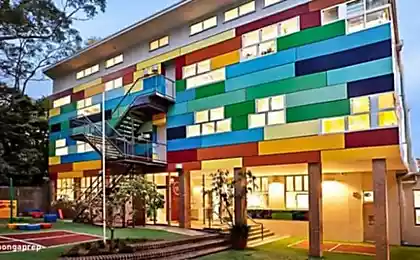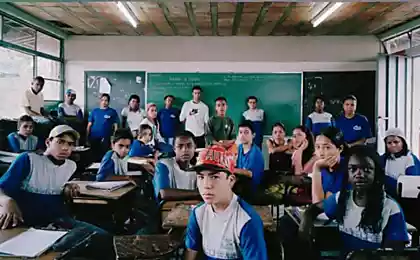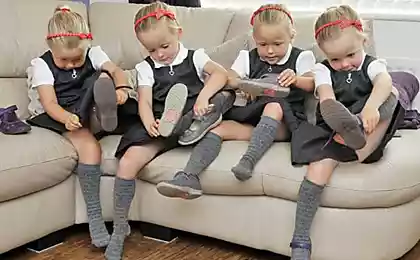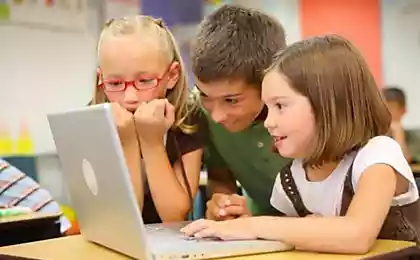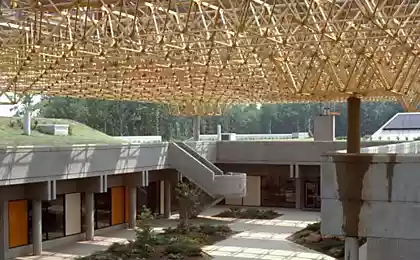145
When studying at home is more effective than cleaning pants in class
The family form of education, or homeschooling (from the English "homeschooling") is known in Russia for more than one year. It is stipulated, in particular, by Federal Law No. 273 “On Education in the Russian Federation” of 2012.

But the real surge of interest in home schooling brought a leap year 2020. Not yet finished, it has already become a real test for students and their parents. After all, many parents had to almost replace teachers during the quarantine.
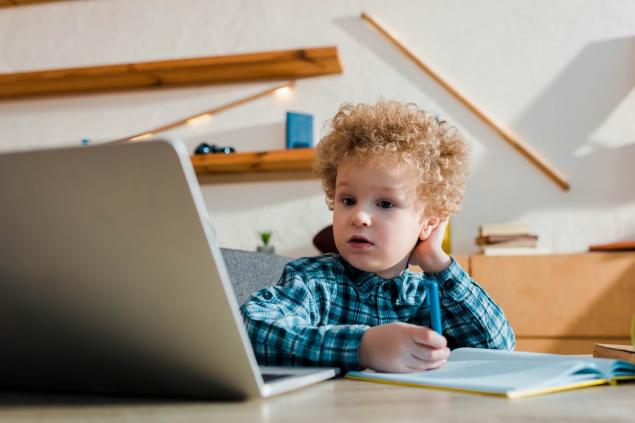
You might be wondering, “Maybe that’s not the way this school is?” Moreover, the quality of home education, as it turned out, very often exceeds school. Today we will talk about the advantages and disadvantages of family education and what it can bring to our children.
In a broad sense, family education is called all its forms that are not related to school attendance. But to avoid confusion, the terms should be understood. Today in Russia there are three forms of home education: home, distance and family.
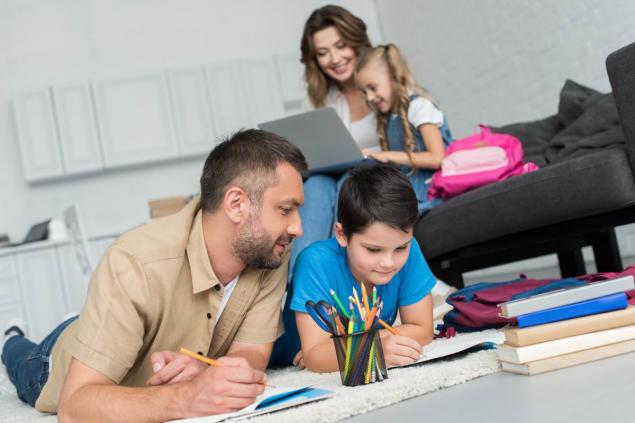
Homeschooling is a compulsory measure provided for those who cannot attend school due to health reasons. Students at home are in the contingent of school, receive textbooks, pass exams. They are appointed teachers who receive salaries at school.
Distance learning allows you to master the program with school teachers, receive information remotely using computer technology. For example, through Zoom or similar programs. Legally, it is not a form of education, but often complements other types of education.
Family education is fundamentally different from home and distance education in its autonomy. By law, it is available to everyone without exception. At the same time, the child voluntarily leaves school and the care of education lies entirely with the parents.
What, how and when to teach, decides the family. But there is still a certain dependence on the official school. Several times a year you need to pass certification in compulsory subjects. I didn't pass, I went back to school. That's the law.
Individual mode, more free time Homeschoolers can wake up later, do not spend time on the road to school. They have time to sleep, have breakfast, and only then calmly start classes.
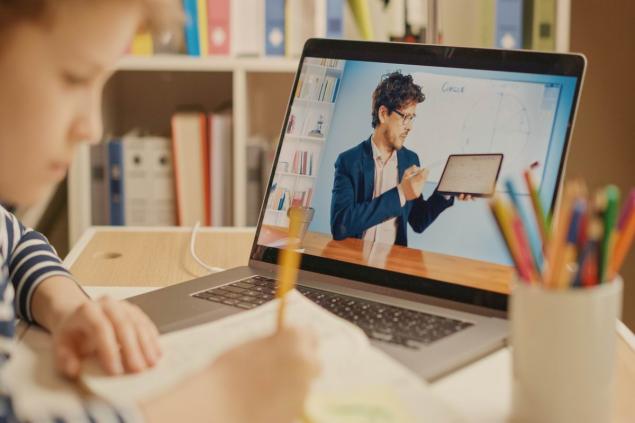
Time is also not spent on organizational school questions, on surveying the whole class. As a result, a third of students spend on family education up to two, and most do not more than 3-4 hours a day.
The educational process, unlike the school, can be very different. Some parents take it completely into their own hands. Others hire tutors, look for online programs for children, or turn to family clubs and specialty private schools.
Parents can choose a suitable schedule for their children. Mathematics Day and then Language and Literature Day. No one forbids in-depth study of favorite subjects, fast-track the program, alternate formats, combine them with visiting circles and sections.
Participating in the learning process, parents spend more time with children. This makes it possible to divide their interests, provide moral support in time, and bridge the gap between generations that we increasingly see at the current pace of life.
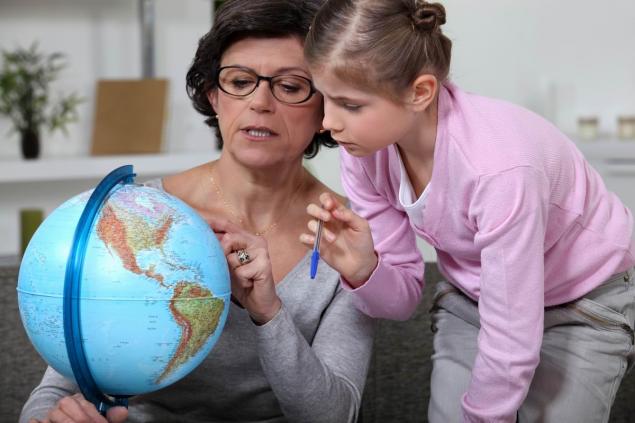
One of the most common reasons why parents choose homeschooling is dissatisfaction with the school curriculum and the quality of the knowledge they receive.

GettyImages Statistics say homeschoolers learn better than peers. A quarter of them are ahead of the program by a year or more relative to their age. Not surprisingly, Mark Twain and Agatha Christie, Lincoln and Roosevelt, Sakharov and Queens received family education.
Teachers also note that family education teaches to independently plan your time, allows you to freely choose goals, think more broadly. Homeowners are less tied to other people’s value judgments. They have fewer complexes and higher self-esteem. But social skills are usually less.
The main argument of opponents of family education is the lack of socialization and difficulties in communicating with peers. 90% of parents surveyed say otherwise. In addition, children have much more time to visit circles, sections, communication on interests.

Another important factor is the cost of education and the cost of parental time. Good tutors cost good money. And the time for which parents could earn them is spent on planning the educational process and conducting lessons.
Family education is still perceived as something out of the ordinary. But the experience of families who have taken risks shows that it can be a good choice in a variety of life circumstances. In addition, the form of education can be changed at any time and returned to school.

But the real surge of interest in home schooling brought a leap year 2020. Not yet finished, it has already become a real test for students and their parents. After all, many parents had to almost replace teachers during the quarantine.

You might be wondering, “Maybe that’s not the way this school is?” Moreover, the quality of home education, as it turned out, very often exceeds school. Today we will talk about the advantages and disadvantages of family education and what it can bring to our children.
In a broad sense, family education is called all its forms that are not related to school attendance. But to avoid confusion, the terms should be understood. Today in Russia there are three forms of home education: home, distance and family.

Homeschooling is a compulsory measure provided for those who cannot attend school due to health reasons. Students at home are in the contingent of school, receive textbooks, pass exams. They are appointed teachers who receive salaries at school.
Distance learning allows you to master the program with school teachers, receive information remotely using computer technology. For example, through Zoom or similar programs. Legally, it is not a form of education, but often complements other types of education.
Family education is fundamentally different from home and distance education in its autonomy. By law, it is available to everyone without exception. At the same time, the child voluntarily leaves school and the care of education lies entirely with the parents.
What, how and when to teach, decides the family. But there is still a certain dependence on the official school. Several times a year you need to pass certification in compulsory subjects. I didn't pass, I went back to school. That's the law.
Individual mode, more free time Homeschoolers can wake up later, do not spend time on the road to school. They have time to sleep, have breakfast, and only then calmly start classes.

Time is also not spent on organizational school questions, on surveying the whole class. As a result, a third of students spend on family education up to two, and most do not more than 3-4 hours a day.
The educational process, unlike the school, can be very different. Some parents take it completely into their own hands. Others hire tutors, look for online programs for children, or turn to family clubs and specialty private schools.
Parents can choose a suitable schedule for their children. Mathematics Day and then Language and Literature Day. No one forbids in-depth study of favorite subjects, fast-track the program, alternate formats, combine them with visiting circles and sections.
Participating in the learning process, parents spend more time with children. This makes it possible to divide their interests, provide moral support in time, and bridge the gap between generations that we increasingly see at the current pace of life.

One of the most common reasons why parents choose homeschooling is dissatisfaction with the school curriculum and the quality of the knowledge they receive.

GettyImages Statistics say homeschoolers learn better than peers. A quarter of them are ahead of the program by a year or more relative to their age. Not surprisingly, Mark Twain and Agatha Christie, Lincoln and Roosevelt, Sakharov and Queens received family education.
Teachers also note that family education teaches to independently plan your time, allows you to freely choose goals, think more broadly. Homeowners are less tied to other people’s value judgments. They have fewer complexes and higher self-esteem. But social skills are usually less.
The main argument of opponents of family education is the lack of socialization and difficulties in communicating with peers. 90% of parents surveyed say otherwise. In addition, children have much more time to visit circles, sections, communication on interests.

Another important factor is the cost of education and the cost of parental time. Good tutors cost good money. And the time for which parents could earn them is spent on planning the educational process and conducting lessons.
Family education is still perceived as something out of the ordinary. But the experience of families who have taken risks shows that it can be a good choice in a variety of life circumstances. In addition, the form of education can be changed at any time and returned to school.
Why You Should Soak Flax Seeds at Night
How to return the shine of the oven glass, washing soot and slimy plaque






